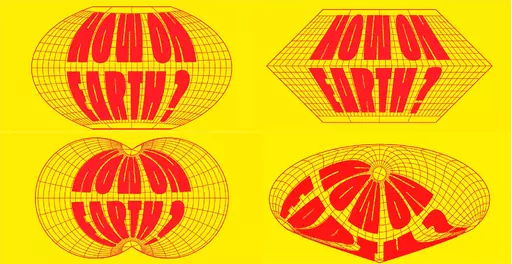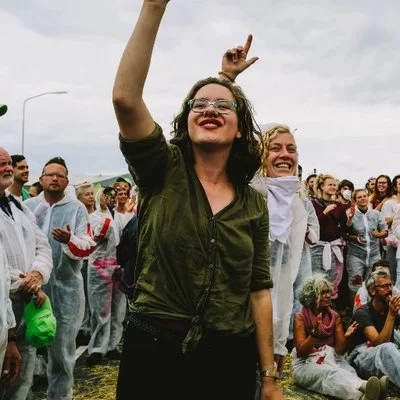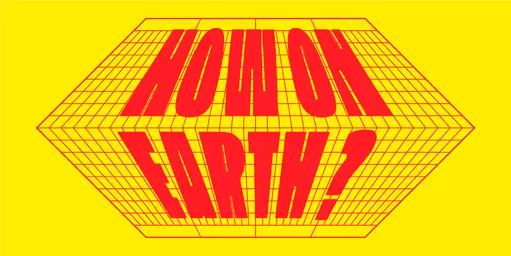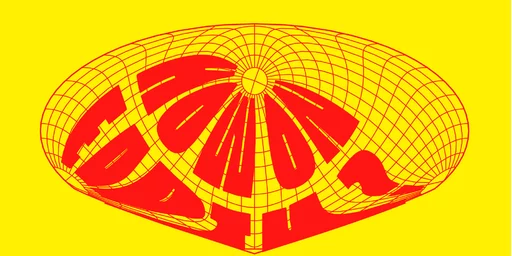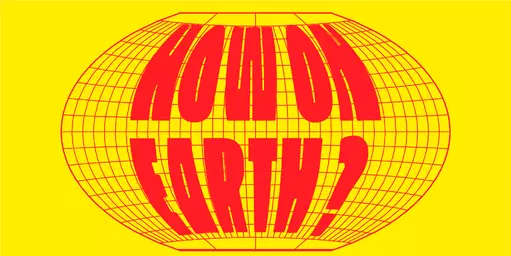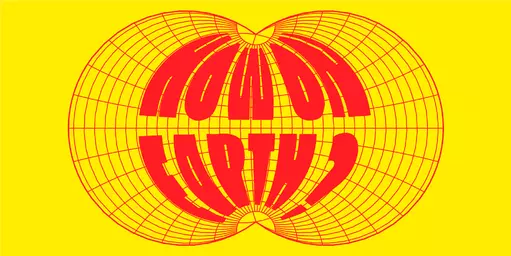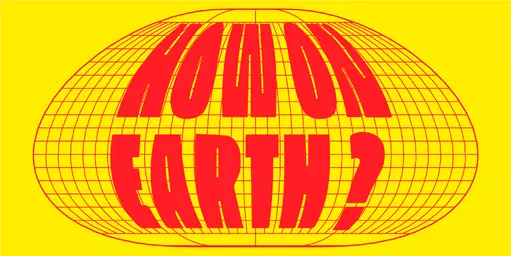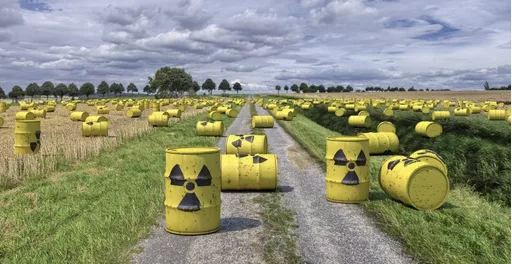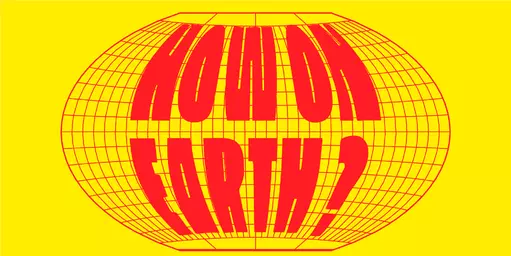
Climate Breakdown
The research programme Climate Breakdown was initiated and developed as a film programme series How on Earth, curated together with AKI ArtEZ Enschede between 2019 and 2020. In the first year the focus was on the power and limits of images in times of ecological crisis.
For the film programme How On Earth, several artists, activists and filmmakers were invited to speak on the ethical dilemmas and challenges in making artistic works on climate breakdown. This series was concluded with an exhibition made by students of AKI BIO MATTERs, and joined by the Portuguese artist Alice dos Rois for an exchange between the students and herself on her film Mood Keep (see the events in related items).
Living Matters
A collection of blogs by students for the Living Matters non-exhibition, which took place during COVID-19. Led by Agnieszka Anna Wołodźko.Climate activism & art
Trips Across the Abyss
When I think of climate change, I struggle to make sense of the world and the people around me. Scientists have called the next century 'the century of hell'. What is immoral and illogical should not happen. And yet, it does happen. 'Status quo', 'business as usual,' or, in less fuzzy terms, 'situation normal, all fucked up.' Stroll around the grounds until you feel at home.
Tales from the Abyss
I was invited to respond to Harriet Bergman’s essay Trips Across the Abyss (2019), itself a response to Bridge Over Troubled Water (2016) – a short film by performance collective MSL and Jaakko Pallasvuo. This response to a response to a film, that is itself a response to the nonsensical affect swirling through and about human and non-human life in the face of climate change, is structured by a series of questions, of political orientations of an often acutely depoliticised subject, and, of course some fictitious (or predictive depending on your point of view) interjections.
Crisis x Response
Current global affairs can be characterized as a continuous state of emergency. The potential of artistic practices lies in learning to imagine and navigate your practice in relation to your environment. The potential danger of art lies in advocating solutions and optimism devoid of local needs and knowledge.
Harriet Bergman on climate breakdown
Radio ArtEZ, season 3, episode 4
In this podcast, Harriet Bergman introduces her academic research on climate breakdown and political emotions, and shares with us how her activism and research inform her work at Fossil Free Culture. Fossil Free Culture is a collective of artists, activists and researchers working at the intersection of art and climate activism. With their disobedient art, they seek to bring an end to oil and gas sponsorship of public cultural institutions in the Netherlands. Harriet Bergman is a philosopher, writer and climate activist.
BONUS: De zaak Shell - Monoloog voor een consument
Nederlands gesproken
In deze bonusaflevering op navolging van de podcast met Harriet Bergman over klimaatafbraak, wordt de zaak van Shell gepresenteerd. In die aflevering hadden we het over de rol die kunst kan spelen in klimaatactivisme. In deze bijzondere aflevering presenteren we een monoloog uit de Zaak Shell van theatermakers Rebekka de Wit en Anoek Nuyens als een krachtig voorbeeld. Rebekka de Wit is een schrijver en een performer, en Anoek Nuyens is een schrijver en theatermaker.
Interview bachelor student dance Polina Nikolaeva
About her choreography 'Semi-processing. Consumed.'
For this blog contribution, we spoke to Polina Nikoleava, a Bachelor student Dance at ArtEZ Arnhem about her choreography and how this work finally was developed into themes that touch upon the topic climate.
Climate Justice Movements & Decolonial practices
Chihiro Geuzebroek: Poetic Climate Justice & Indigenous Futurism
Videoregistratie online event 22 april 2020
Mister Motley en ArtEZ Studium Generale begonnen een online lunch event serie op woensdag 22 april 2020 met filmmaker and climate justice activist Chihiro Geuzebroek en spraken met haar over het verband tussen de klimaatbeweging, racisme en de rechten van Inheemse volken. En over de kracht van protestliederen en science fiction om dingen te veranderen.
‘Wanneer land de basis vormt van betekenis, is groei een gekke obsessie’
In gesprek met Chihiro Geuzebroek
Op woensdag 22 april 2020 was filmmaker en klimaatrechtenactivist Chihiro Geuzebroek te gast in het online lunch event dat mister Motley samen met ArtEZ Studium Generale organiseerde. Dit event ging over de kracht van leuzen en liedjes in de dekoloniale klimaatstrijd.
Projects about climate colonialism, climate breakdown and climate activism from the Arte Útil archive
We asked curators and educators Gemma Medina and Alessandra Saviotti to select some projects that deal with climate colonialism, climate breakdown and climate activism from the Arte Útil archive. This online, growing database is free and features case studies which use art as a way to change how we act in society.
Collective organizing & methods in the arts
Talkshow: Lotte van den Berg over Het parlement van de dingen
In dit interview gaat Patty Pontier in gesprek met Lotte van den Berg en aantal studenten over haar workshop U Staat hier, en met name hoe Lotte van den Berg in haar collectief het gesprek als een kunstwerk en een collectieve improvisatie benaderd, waarbij het publiek wordt uitgenodigd om deel te nemen. Lotte van den Berg is een theatermaker en een toneelregisseur.
Lezing Henk Wildschut: ‘Voedsel en de realiteit achter het beeld’
Weinig onderwerpen roepen zoveel discussie op als het voedselvraagstuk. Daarin voeren scepsis en pessimisme over de productie van ons voedsel steeds vaker de boventoon. Toen Henk Wildschut gevraagd werd door het Rijksmuseum en NRC zich te verdiepen in het onderwerp ‘voedsel’ zat hij vol vooroordelen over de voedselindustrie. Door zich te verdiepen in de moderne innovatieve productie van ons basisvoedsel (groente, vlees, eieren en melk) veranderde dit beeld. Hij ontdekte dat onze afkeer van de moderne voedsel industrie is gebaseerd op nostalgisch beelden die al lang niet meer bestaan. In zijn lezing presenteert hij realistische beelden die minder eng zijn dan ze lijken. Henk Wildschut is een fotograaf en een documentairemaker.
Willem Schinkel in gesprek met Wunderbaum
In dit gesprek spreken socioloog en filosoof Willem Schinkel en dramaturg Tobias Kokkelmans met elkaar en studenten over macht, tegenmacht en rechtvaardigheid in een democratie. Dit gesprek was onderdeel van de workshop van Wunderbaum, waarbij de deelnemers waren uitgenodigd voor een collectieve brainstorm. Socioloog en filosoof Willem Schinkel was uitgenodigd om dit gesprek te voeden naar aanleiding van zijn boek De Nieuwe Democratie. Wunderbaum is een theatercollectief. Willem Schinkel is socioloog en een filosoof en is verbonden aan de Erasmus Universiteit in Rotterdam.
An interactive workshop by John-Paul Flintoff: How to Change the World?
Flintoff teaches ArtEZ students how they can make a difference at A New Dawn, 24 May 2013, by ArtEZ Studium Generale.

First ArtEZ student contributions Open Call APRIA published
Staying with the Trouble. How to Tell Stories in the Time of Ecological Crisis?
agenda
How on Earth presents: Matters of Vision
What is the role of art and design in challenging anthropocentrism?
12 dec. 2019Auditorium, AKI ArtEZ Enschede 17:00 - 19:30 hrs
How on Earth presents: Earthbound
film screening and lecture performance by Sjoerd van Oevelen and Elodie Hiryczuk
28 nov. 2019Auditorium, AKI ArtEZ Enschede 17:00 - 19:30 hrs
How on Earth presents the (de)mobilizing power of eco-anxiety and discomfort
Harriet Bergman will talk about climate change, doom-dude protagonists, and discomfort.
12 nov. 2019Focus Filmtheater, Arnhem 19.00 - 21.30 hrs.
How on Earth presents Biodemonology Night. On Practicing Xenobodies by Witches, Hackers and Nonhumans.
Evening curated by Agnieszka Anna Wolodźko i.c.w. Tetem
31 okt. 2019Auditorium, AKI ArtEZ Enschede 19.30-21.30 hrs.
How on Earth presents what’s wrong with the Anthropocene?
26 sep. 2019Auditorium, AKI ArtEZ Enschede 19.30 - 21.30 hrs
How on Earth presents Living Images
05 sep. 2019Room 1.12 AKI ArtEZ Enschede 14.00 hrs
Biomatters of a precarious future
27 mrt. 2019Tetem Enschede 19:30 uur
